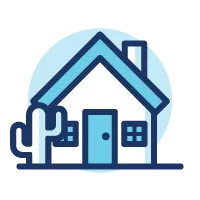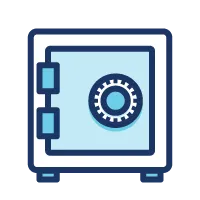Key Takeaways
- By strategically consolidating high-interest debts, you can simplify your repayment process and potentially save money on interest.
- Creating a budget and prioritizing high-interest debt is practicing proactive debt management, which can help you effectively tackle credit card debt.
- When choosing a credit card consolidation method, consider interest rates, fees and potential risks associated with each.
Do you want to get your credit card debt under control? If so, you're not alone in feeling overwhelmed or challenged by an insurmountable amount of credit card debt. According to Experian, the average American adult holds $5,910 in credit card debt.
With how easy it is in today's fast-paced world to add up the credit card spending, it's important to have a strategic plan to consolidate and pay off debt efficiently. In this guide, we'll explore the best ways to consolidate credit card debt, share tips for managing debt, and dive into the most efficient repayment strategies.
What is Credit Card Consolidation?
Credit card consolidation is a financial strategy that involves combining multiple credit card balances into a single, more manageable debt. This process is meant to simplify repayment by consolidating high-interest debts into a lower-interest option, ultimately making it easier for you to pay off what you owe. There are various ways of doing credit card consolidation, and we'll dive into each method below so you can find the one that suits your financial situation.
Pros and Cons of Credit Card Consolidation
Credit card consolidation can be a powerful tool for managing debt, but like any financial strategy, it comes with its own set of advantages and disadvantages.
Pros of Credit Card Consolidation:
Simplified repayment: Combining multiple high-interest credit card balances into a single debt makes it easier to manage and reduces the risk of missing payments.
Potential for lower interest rates: Depending on the consolidation method, such as a balance transfer to a card with a lower interest rate or a debt consolidation loan, you may have the potential to save money on interest. This can result in significant cost savings over time.
Improved credit score: Successfully managing credit card consolidation, making timely payments, and reducing credit utilization can positively impact your credit score. A higher credit score opens opportunities for better financial products and terms in the future.
Cons of Credit Card Consolidation:
Balance transfer fees: When opting for a balance transfer credit card, there may be associated fees that can offset the potential savings from the lower interest rate. Consider the overall cost of using this credit card consolidation method.
Risk of accumulating new debt: Consolidating credit card debt doesn't eliminate the temptation to use credit cards. You still run the risk of accumulating new debt on your credit cards, thus worsening your financial situation.
Risk of losing collateral: For consolidation methods that involve using collateral, such as a home equity loan, there is a risk of losing the collateral (i.e., your home) if you're unable to meet the repayment terms.
The 4 Best Ways to Consolidate Credit Card Debt
Let's do a deep dive into the best credit card consolidation methods so you can decide what works best for you.
1 Balance Transfer Credit Card
One popular credit card consolidation method is to use a balance transfer credit card with a low or 0% introductory APR. This allows you to transfer and consolidate multiple high-interest balances onto one card, saving money on interest during the introductory period. The key is to pay off the balance before the regular APR kicks in.
Example: Let's say you have $10,000 in credit card debt with an average interest rate of 20%. If you transfer this balance to a 0% APR balance transfer card with a 12-month introductory period, you could save $2,000 in interest during that time. By paying $833.33 per month for 12 months, you can completely pay off the debt without accruing additional interest.
2 Debt Consolidation Loan
Another method is to apply for a personal loan with a lower interest rate than your credit cards, then use the loan funds to pay off your credit card balances. You'll make fixed monthly payments on the personal loan until the debt is fully repaid.
3 Home Equity Loan or Line of Credit
If you own a home, you might consider using a home equity loan or line of credit to consolidate credit card debt. These options typically offer lower interest rates, but they use your home as collateral, so be aware and cautious of the associated risks.
4 Seek Professional Financial Help
If you're not sure on the best way to go about consolidating credit card debt, consider working with a credit counseling agency for guidance on debt management plans. These plans involve negotiating with creditors to lower interest rates and create a structured repayment plan.
Let's talk options.
Our partners at Greenpath Financial offer free financial coaching to help you get back on your feet.
Tips for Managing Credit Card Debt
Now that you have a few ideas of how to consolidate credit card debt, it's time to make a plan. Here's how to proactively start managing your credit card debt.
- Create a budget: Get a clear picture of your monthly income and expenses by creating a detailed budget. Identify areas where you can cut back on costs and allocate more funds towards debt repayment.
- Prioritize high-interest debts: Tackle your high-interest credit card balances first to minimize the overall interest paid over time.
- Consolidate with a purpose: Choose a consolidation method that aligns with your financial goals and allows you to save money on interest. Consider the risks of each method as you make your decision.
Credit Card Consolidation FAQs
Debt consolidation itself does not actually harm your credit score. In fact, it can positively impact your credit by streamlining payments and reducing credit utilization. However, making timely payments on your consolidation method is how you'll maintain or improve your credit score.
Credit card consolidation may be a suitable option if you have multiple high-interest credit card balances and find it challenging to manage them individually. It's especially beneficial if you can secure a consolidation option with a lower interest rate than your current credit cards.
There are a few ways you might be able to get a debt consolidation loan with bad credit – explore lenders that specialize in helping people with bad credit, consider offering collateral, or look into government programs for assistance. Having a co-signer with better credit can also boost your chances of approval.
Debt consolidation involves combining multiple debts, often high-interest credit card balances, into a single, more manageable debt. This can be achieved through methods like balance transfers, personal loans, or home equity loans. Credit card refinancing, specifically, refers to transferring an existing credit card balance to a new card with a lower interest rate. While both aim to streamline repayment and potentially reduce interest, debt consolidation is a broader concept encompassing various methods, whereas credit card refinancing specifically targets credit card balances.
APR = Annual Percentage Rate














